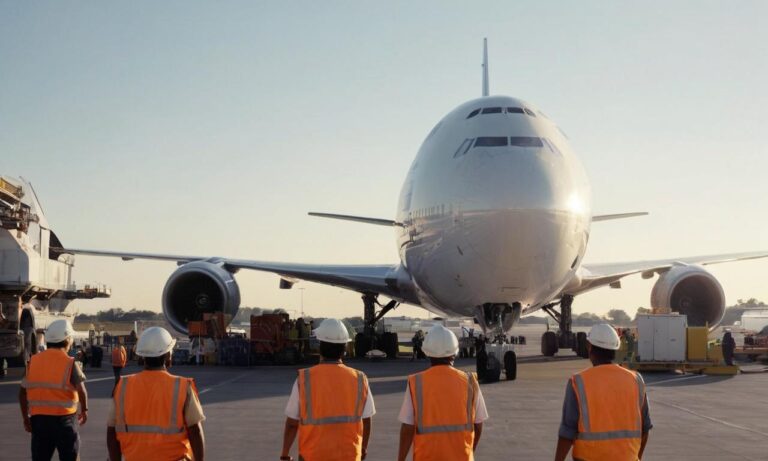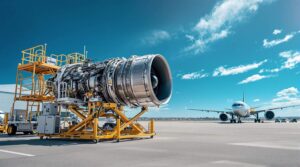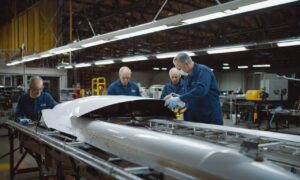In a moment that marks the end of an era, the last Boeing 747 has rolled out of the factory, signaling the closure of a chapter in aviation history. The iconic jumbo jet, once the epitome of long-haul air travel, has seen a storied legacy since its first flight in 1969.
The Boeing 747 Legacy
Often referred to as the “Queen of the Skies,” the Boeing 747 revolutionized air travel with its distinctive hump and unparalleled capacity. Over the years, it became the flagship of many airlines, symbolizing luxury and comfort for passengers around the world. Its spacious interiors and groundbreaking design set new standards for the aviation industry.
The decision to cease production of the Boeing 747 comes as airlines shift their focus towards more fuel-efficient and technologically advanced aircraft. Despite its iconic status, the 747 faced challenges in the modern era of aviation, where smaller, more efficient planes have taken center stage.
The End of an Era
As the last 747 leaves the factory, aviation enthusiasts and industry insiders alike reflect on the impact this aircraft has had over the decades. The aviation landscape has evolved, and the retirement of the 747 marks a poignant moment in the industry’s history.
The era of four-engine, long-range aircraft is giving way to twin-engine models that offer increased fuel efficiency and lower operating costs. This shift is in response to the growing emphasis on sustainability and environmental responsibility in the aviation sector.
Technological Advancements
The last 747’s departure also underlines the relentless march of technology in aviation. Modern aircraft feature state-of-the-art materials, advanced avionics, and more fuel-efficient engines. These advancements not only improve performance but also contribute to reducing the carbon footprint of air travel.
While bidding farewell to the Boeing 747, we welcome a new era of aviation that prioritizes innovation, sustainability, and passenger comfort. The industry’s commitment to pushing boundaries ensures that air travel continues to evolve, meeting the changing needs of a globalized world.
Looking Ahead
As we witness the last Boeing 747 leaving the factory, we are reminded of the industry’s resilience and adaptability. The future holds exciting possibilities, with ongoing developments in electric and hybrid propulsion, artificial intelligence, and sustainable aviation fuels.
While the 747 era concludes, the aviation industry remains dynamic, driven by a relentless pursuit of progress. We look forward to the next chapter in aviation history, where innovation and sustainability go hand in hand to shape the future of air travel.
Legacy and Impact
The Boeing 747’s legacy extends beyond its role as a pioneering aircraft. Its introduction marked a turning point in global connectivity, enabling airlines to offer more routes and connecting distant corners of the world. The iconic hump, once a symbol of luxury, will forever be etched in the collective memory of aviation enthusiasts.
Global Influence
The Boeing 747’s influence reached far beyond the United States, where it was manufactured. Airlines from various countries embraced the jumbo jet, making it a symbol of international travel. The 747’s contribution to fostering global connections and cultural exchange is undeniable.
| Year | Number of 747s Produced | Top Airlines Operating 747s |
|---|---|---|
| 1969-1980 | 393 | Pan American, Lufthansa, British Airways |
| 1981-2000 | 365 | Japan Airlines, Delta Air Lines, United Airlines |
| 2001-2020 | 106 | Korean Air, Air China, Virgin Atlantic |
Frequently Asked Questions
-
Q: Why did Boeing decide to stop producing the 747?
-
A: Boeing ceased production due to a shift in market demand towards more fuel-efficient and technologically advanced aircraft. The era of large, four-engine planes gave way to twin-engine models.
-
Q: What will replace the Boeing 747 in the aviation industry?
-
A: The industry is transitioning to twin-engine planes known for increased fuel efficiency. Models like the Boeing 777 and Airbus A350 have become popular choices for long-haul flights.
-
Q: How did the Boeing 747 contribute to aviation history?
-
A: The Boeing 747 played a crucial role in expanding global air travel by offering unprecedented capacity and range. It symbolized luxury and comfort, leaving an indelible mark on the aviation industry.
The Evolution Continues
While bidding farewell to the Boeing 747, we anticipate further advancements in aviation. The future promises innovations in materials, propulsion systems, and aircraft design. These developments will shape a new era of air travel that combines efficiency, sustainability, and passenger-centric experiences.






